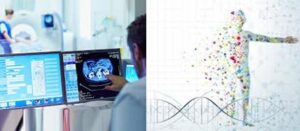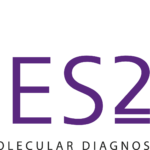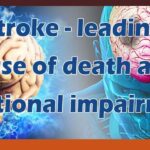Intersection of Biology, Medicine and AI can save lives. Advanced technology led by artificial intelligence (or AI) has already proven its mettle in various fields and it is time that AI is brought into biology and medicine to help save lives and improve health outcomes.


“It is much more important to know what sort of a patient has a disease than what sort of a disease a patient has.”
– William Osler, “The father of modern medicine”
Amid the pandemic, it is tempting to think that all diseases receive the urgent, concerted, global attention that COVID-19 is getting or that diseases follow a unique, decodable trajectory. Nothing could be further from the truth. Diseases, including COVID-19, are complex and exist in a network of interconnections best studied from multiple dimensions.
Take our understanding of COVID-19 itself: we not only know that the SARS-CoV-2 virus belongs to the β-CoV genera of coronaviruses but also that it can cause acute respiratory disorders and that specific co-morbidities, especially hypertension, cardiovascular diseases, and diabetes, significantly raise the risk of infection with worse lung function and death.[1]
Diverse factors influence disease severity and occurrence
Further, COVID-19 seems to affect certain demographic segments more than others. In the US, for example, the pandemic has hit African Americans the hardest. As of July 2020, Black or African American people topped the list of COVID-19 deaths per 100,000 people in the US by race/ethnicity with an estimated 74 deaths as against 31 for people of Asian origin. Research has revealed multiple reasons for this disparity, including social, economic, geographical, and medical factors.
What we also know is that across ethnicities, across the world, people living in certain situations are more vulnerable to falling ill from respiratory diseases, staying ill for longer and finding access to the right healthcare facilities harder.
The pandemic has made us more aware of the pivotal role healthcare systems play in saving lives. With the world population at 7.8 billion people[2] and growing, and with both communicable and non-communicable diseases not showing any signs of letting up, even the most advanced breakthroughs in medicine and biology are not going to be able to keep pace.
AI’s power to deliver life-saving insights
To fare better in healthcare in the coming decades, we will have to acknowledge the interconnectedness of its challenges[3] and understand that the traditional episodic approach to treating illness will need to be replaced. What is required instead is a comprehensive view of well-being that connects the dots between disparate sets of data to provide patients, payers, and providers with the 360-degree picture they need of every individual to prevent, pick up and correctly treat diseases.
Advanced technology led by artificial intelligence (or AI) has already proven its mettle in business, banking, and government functions by detecting patterns in large volumes of data. I believe it is time that AI is brought into biology and medicine to help save lives and improve health outcomes. As a technology, AI is uniquely placed in empowering our comprehensive understanding of diseases, their linkages, and their evolution. By unearthing unforeseen connections between a vast variety of factors—including economic, social, cultural, and medical—AI can empower caregivers and individuals to act more proactively and in a timely fashion.
Moving from a reactive to a proactive approach of healthcare
Take the case of maternal health. According to a recent factsheet released by the WHO[4], approximately 810 women died from preventable causes related to pregnancy and childbirth every day in 2017. WHO found that a vast majority, about 94 per cent, of these deaths took place in ‘low-resource’ settings, characterised by inequality of access to quality healthcare facilities. It also found that most deaths could have been prevented.
An AI-enabled platform deployed to enhance maternal health outcomes can change this narrative for good. By placing AI at the intersection of medicine, biology and demographics, AI-enabled algorithms can scan trillions of data points to detect and quantify possible health risks during pregnancies. The risks thus detected can help all healthcare stakeholders, including physicians, payers, governments, pharmaceutical companies, and pregnant mothers to delineate the precise risk factors.
AI can also be applied across the disease spectrum. Whether it is psychiatric disorders, diabetes, cardiovascular diseases or oncology, healthcare and its stakeholders can benefit from leveraging the insights that AI can provide by moving the needle from a primarily reactive to a proactive approach.


Dr. Suresh Attili
Co-Founder and CMO
CognitiveCare
[1]https://www.sciencedirect.com/science/article/pii/S1876034120305943#bib0035
[2]https://www.worldometers.info/world-population/
[3]https://www.weforum.org/agenda/2020/02/who-healthcare-challenges-2020s-climate-conflict-epidemics/
[4]https://www.who.int/news-room/fact-sheets/detail/maternal-mortality











